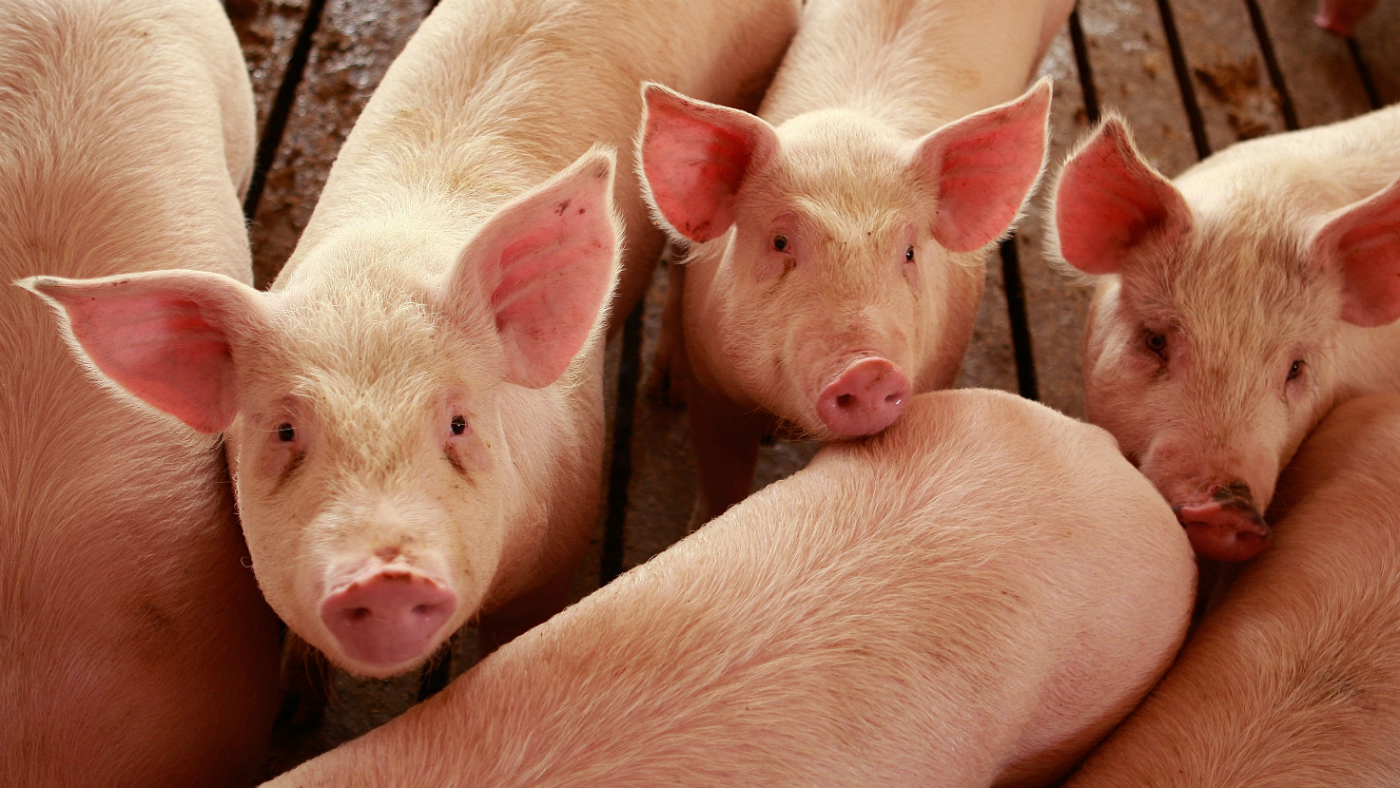Pig virus poses potentially lethal threat to humans, scientists warn
Study shows newly discovered Sars-like disease can jump between cells of different species

A free daily email with the biggest news stories of the day – and the best features from TheWeek.com
You are now subscribed
Your newsletter sign-up was successful
A recently identified lethal virus that occurs mainly in pigs may also pose a threat to humans, new research has suggested.
Laboratory tests at Ohio State University show that the disease, known as porcine deltacoronavirus, “readily jumps between the cells of different species including humans”, The Daily Telegraph reports.
The virus was first identified in pigs in China six years. It was then found to be the cause of a diarrhoea outbreak among pigs in Ohio in 2014, followed by reports of more cases in other countries. “Young infected pigs experience acute diarrhoea and vomiting and may die,” according to BT News.
The Week
Escape your echo chamber. Get the facts behind the news, plus analysis from multiple perspectives.

Sign up for The Week's Free Newsletters
From our morning news briefing to a weekly Good News Newsletter, get the best of The Week delivered directly to your inbox.
From our morning news briefing to a weekly Good News Newsletter, get the best of The Week delivered directly to your inbox.
The pathogen shows similarities to Mers (Middle East respiratory syndrome) and Sars (severe acute respiratory syndrome), which have killed a total of at least 1,000 people worldwide since being discovered in 2012 and 2002 respectively.
“We’re very concerned about emerging coronaviruses and worry about the harm they can do to animals and their potential to jump to humans,” said Professor Linda Saif, a co-author of the research report, published yesterday in the journal Proceedings of the National Academy of Sciences.
The study found that the virus has the ability to target a specific receptor molecule on the surface of cells within the digestive tract, and can bind to this receptor in chickens, cats and humans.
Lead researcher Dr Scott Kenney said: “A receptor is like a lock in the door. If the virus can pick the lock, it can get into the cell and potentially infect the host.
A free daily email with the biggest news stories of the day – and the best features from TheWeek.com
“From that point, it’s just a matter of whether it can replicate within the cells and cause disease in those animals and humans.”
-
 Film reviews: ‘Send Help’ and ‘Private Life’
Film reviews: ‘Send Help’ and ‘Private Life’Feature An office doormat is stranded alone with her awful boss and a frazzled therapist turns amateur murder investigator
-
 Movies to watch in February
Movies to watch in Februarythe week recommends Time travelers, multiverse hoppers and an Iraqi parable highlight this month’s offerings during the depths of winter
-
 ICE’s facial scanning is the tip of the surveillance iceberg
ICE’s facial scanning is the tip of the surveillance icebergIN THE SPOTLIGHT Federal troops are increasingly turning to high-tech tracking tools that push the boundaries of personal privacy
-
 Israel retrieves final hostage’s body from Gaza
Israel retrieves final hostage’s body from GazaSpeed Read The 24-year-old police officer was killed during the initial Hamas attack
-
 China’s Xi targets top general in growing purge
China’s Xi targets top general in growing purgeSpeed Read Zhang Youxia is being investigated over ‘grave violations’ of the law
-
 Panama and Canada are negotiating over a crucial copper mine
Panama and Canada are negotiating over a crucial copper mineIn the Spotlight Panama is set to make a final decision on the mine this summer
-
 Why Greenland’s natural resources are nearly impossible to mine
Why Greenland’s natural resources are nearly impossible to mineThe Explainer The country’s natural landscape makes the task extremely difficult
-
 Iran cuts internet as protests escalate
Iran cuts internet as protests escalateSpeed Reada Government buildings across the country have been set on fire
-
 US nabs ‘shadow’ tanker claimed by Russia
US nabs ‘shadow’ tanker claimed by RussiaSpeed Read The ship was one of two vessels seized by the US military
-
 ‘Lumpy skin’ protests intensify across France as farmers fight cull
‘Lumpy skin’ protests intensify across France as farmers fight cullIN THE SPOTLIGHT A bovine outbreak coupled with ongoing governmental frustrations is causing major problems for French civil society
-
 How Bulgaria’s government fell amid mass protests
How Bulgaria’s government fell amid mass protestsThe Explainer The country’s prime minister resigned as part of the fallout